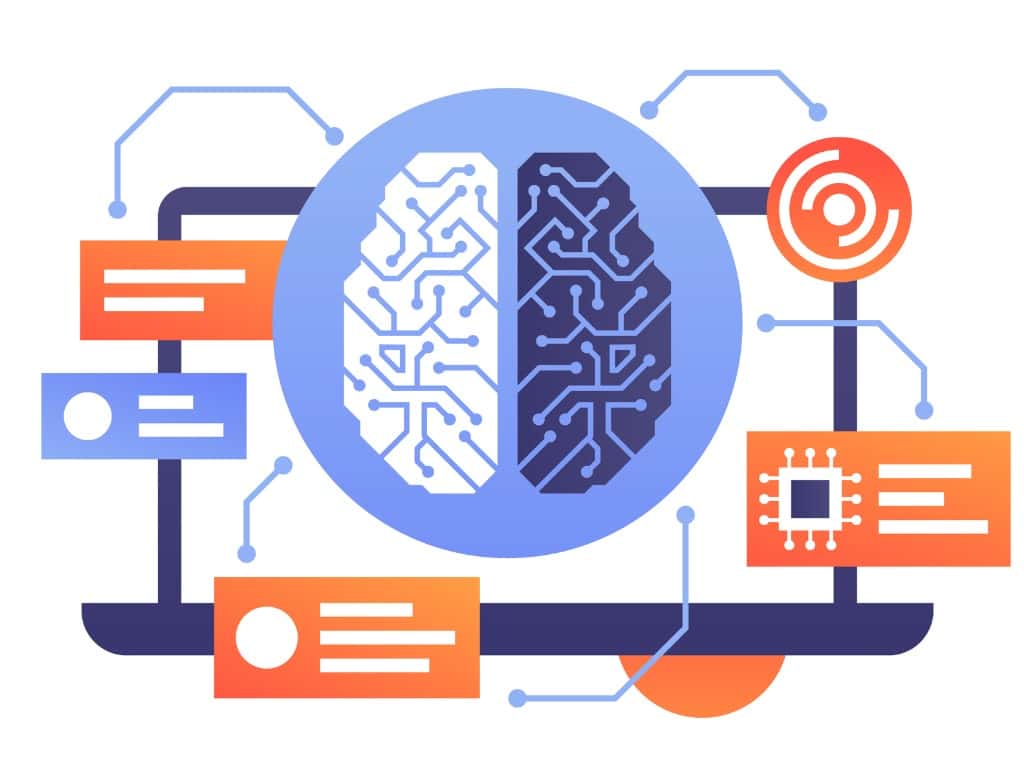The rise of automation and artificial intelligence has led to concerns about the future of certain professions. One such profession is that of machine learning engineers. As technology continues to advance, many are wondering if these engineers will eventually be replaced by the very machines they help create.
What is machine learning engineering?
Machine learning engineering is the process of designing, building, and deploying machine learning models to solve real-world problems. It involves a combination of skills from computer science, mathematics, and statistics to create algorithms that can learn from data and make predictions based on that information. Machine learning engineers work with large datasets to develop models that can identify patterns and make accurate predictions.
As an AI expert at Prometheuz, I have seen how machine learning engineering has evolved over time. Originally, machine learning was primarily used for academic research projects. However, as more companies began to realize the potential benefits of using machine learning to automate tasks and improve decision-making processes, the demand for skilled machine learning engineers grew rapidly.
The Evolution of Machine Learning Engineering Over Time
When I first started working in AI, most of my colleagues were focused on developing traditional rule-based systems. These systems relied on manually programmed rules to make decisions and perform tasks. However, as the amount of data being generated increased exponentially, it became clear that these rule-based systems were not scalable or efficient enough to handle the complexity of modern data sets.
This led to a shift towards more sophisticated machine learning algorithms that could learn from data without being explicitly programmed. Today, we are seeing an increasing trend towards deep learning models that use neural networks to simulate human-like decision-making processes.
Key Skills Required for a Career in Machine Learning Engineering
- Strong programming skills in languages such as Python or R
- A solid understanding of statistics and probability theory
- Familiarity with data visualization tools like Tableau or PowerBI
- An ability to work with large datasets using SQL or NoSQL databases
- A deep understanding of machine learning algorithms such as linear regression, decision trees, and neural networks
- An ability to work with cloud computing platforms like AWS or Google Cloud Platform
How Machine Learning Engineers Contribute to the Development of AI Systems
Machine learning engineers play a critical role in developing AI systems by designing and implementing machine learning models that can learn from data. They work closely with data scientists and other experts to identify the best algorithms for a given problem and then fine-tune those algorithms to achieve the desired performance.
Once a model has been developed, machine learning engineers are responsible for deploying it in production environments where it can be used to make predictions on new data. This involves working with software development teams to integrate the model into existing systems and ensuring that it is scalable, reliable, and efficient.
Challenges Faced by Machine Learning Engineers When Developing AI Systems
One of the biggest challenges faced by machine learning engineers is dealing with bias in data sets. If a model is trained on biased data, it will likely produce biased results. This can have serious consequences in areas such as healthcare or criminal justice where decisions made by AI systems can impact people’s lives.
Another challenge is ensuring that models are robust enough to handle unexpected inputs or changes in the environment. For example, if a self-driving car encounters an unexpected obstacle on the road, its decision-making algorithm needs to be able to adapt quickly and safely.
Ethical Concerns Related to the Work of Machine Learning Engineers
The work of machine learning engineers raises important ethical questions about how AI systems should be designed and deployed. For example, there are concerns about privacy violations when personal information is used to train models without individuals’ consent.
There are also concerns about job displacement as more tasks become automated by AI systems. Machine learning engineers have a responsibility to consider the potential social and economic impacts of their work and to design systems that are beneficial to society as a whole.
The Evolution of Machine Learning Engineering Over Time
Machine learning engineering has come a long way since its inception. Initially, machine learning was limited to simple algorithms that could only perform basic tasks such as pattern recognition and decision-making. However, with the advent of more advanced computing technologies and the availability of large amounts of data, machine learning has evolved into a sophisticated field that can handle complex tasks such as natural language processing and image recognition.
The Early Days of Machine Learning
In the early days of machine learning, researchers were primarily focused on developing algorithms that could learn from data. These algorithms were often based on statistical models that used mathematical techniques to identify patterns in data. However, these models were limited in their ability to generalize to new data and required significant human intervention to optimize.
Modern Machine Learning Engineering
Today, machine learning engineering is a multidisciplinary field that combines computer science, statistics, mathematics, and domain expertise. Modern machine learning systems are designed to be scalable, robust, and efficient. They can handle vast amounts of data and can learn from it in real-time. Moreover, modern machine learning systems are highly automated and require minimal human intervention.
Future Directions for Machine Learning Engineering
The future of machine learning engineering is bright. With the continued advancement of computing technologies and the growing availability of big data, we can expect further breakthroughs in this field. Some potential areas for development include explainable AI (XAI), which aims to make AI systems more transparent and understandable; reinforcement learning (RL), which allows machines to learn by trial-and-error; and deep learning (DL), which uses neural networks to model complex relationships between inputs and outputs.
Key Skills Required for a Career in Machine Learning Engineering
A career in machine learning engineering requires a combination of technical skills, domain knowledge, and soft skills. Here are some of the key skills required to succeed in this field:
Technical Skills
To work as a machine learning engineer, you need to have a strong foundation in computer science and mathematics. You should be proficient in programming languages such as Python, R, and Java. You should also have experience working with data analysis tools such as SQL, Pandas, and NumPy. In addition, you should be familiar with machine learning algorithms and techniques such as supervised learning, unsupervised learning, and deep learning.
Domain Knowledge
To apply machine learning techniques effectively, you need to have a good understanding of the domain you are working in. For example, if you are developing a machine learning system for healthcare applications, you need to have knowledge of medical terminology and procedures. Similarly, if you are developing a system for financial applications, you need to have knowledge of finance and economics.
Soft Skills
In addition to technical skills and domain knowledge, successful machine learning engineers also possess soft skills such as communication skills, teamwork skills, problem-solving skills, and time-management skills. They should be able to work collaboratively with other team members and stakeholders. They should also be able to communicate complex technical concepts to non-technical audiences.
How Machine Learning Engineers Contribute to the Development of AI Systems
Machine learning engineers play a crucial role in the development of AI systems. Their primary responsibility is to design and develop algorithms that enable machines to learn from data and make decisions based on that data. Here are some ways in which machine learning engineers contribute to the development of AI systems:
Data Collection and Preparation
One of the most critical tasks in developing an AI system is collecting and preparing data for analysis. Machine learning engineers work closely with data scientists and domain experts to identify relevant data sources and ensure that the data is clean, organized, and properly labeled.
Algorithm Development and Optimization
Once the data has been collected and prepared, machine learning engineers work on developing algorithms that can analyze the data and make predictions or decisions based on that analysis. They also optimize these algorithms to ensure that they are scalable, efficient, and accurate.
Model Selection and Deployment
After developing and optimizing algorithms, machine learning engineers select the best model for a particular application. They then deploy this model in a production environment where it can be used to make real-time decisions.
Challenges Faced by Machine Learning Engineers When Developing AI Systems
Developing AI systems is not without its challenges. Here are some of the most common challenges faced by machine learning engineers:
Data Quality
One of the biggest challenges in developing an AI system is ensuring that the data used to train the system is of high quality. Poor-quality data can lead to inaccurate predictions or decisions.
Data Privacy and Security
Another challenge facing machine learning engineers is ensuring that sensitive data remains private and secure. This is particularly important in applications such as healthcare or finance where there are strict regulations governing how data can be used.
Interpretability
As AI systems become more complex, it becomes increasingly difficult to understand how they arrive at their decisions or predictions. This lack of interpretability makes it challenging to identify errors or biases in the system.
The Need for Human Oversight
To address these challenges, machine learning engineers need to work closely with domain experts and stakeholders to ensure that AI systems are transparent, reliable, and ethical. Moreover, human oversight is critical in identifying errors or biases in these systems.
Ethical Concerns Related to the Work of Machine Learning Engineers
The development of AI systems raises several ethical concerns, particularly in the areas of data privacy, bias, and accountability. Here are some of the most pressing ethical concerns related to the work of machine learning engineers:
Data Privacy
The collection and use of personal data by AI systems raise significant privacy concerns. It is essential that machine learning engineers take steps to ensure that sensitive data remains private and secure.
Bias
AI systems are only as good as the data they are trained on. If this data is biased or incomplete, it can lead to discriminatory or inaccurate predictions or decisions. Machine learning engineers need to be aware of these biases and take steps to address them.
Accountability
As AI systems become more autonomous, it becomes increasingly challenging to hold them accountable for their actions. Machine learning engineers need to design these systems with accountability in mind and ensure that there are mechanisms in place for identifying errors or biases.
The Impact of Advancements in Automation Technology on Machine Learning Engineering
Advancements in automation technology have had a significant impact on machine learning engineering. Here are some ways in which automation has changed this field:
Increased Efficiency
Automation has made it possible for machine learning engineers to develop and deploy models more quickly and efficiently than ever before. This increased efficiency has allowed organizations to scale their AI initiatives rapidly.
New Opportunities for Innovation
Automation has also opened up new opportunities for innovation in machine learning engineering. For example, automated machine learning (AutoML) tools allow non-experts to build models without deep technical knowledge.
Potential Drawbacks
While automation has many benefits, it also has potential drawbacks. One concern is that too much reliance on automated tools could lead to a lack of creativity and innovation among machine learning engineers.
Will Automation Technology Replace Human Machine Learning Engineers Altogether?
The question of whether automation technology will replace human machine learning engineers altogether is a complex one. While automation has made it possible to develop and deploy models more efficiently, there are still many tasks that require human expertise. Here are some factors to consider:
Complexity of Tasks
Tasks that involve high levels of creativity, problem-solving, and critical thinking are less likely to be automated. Machine learning engineers will continue to play an essential role in developing and optimizing these systems.
Domain Expertise
Machine learning engineers with domain expertise in areas such as healthcare or finance are less likely to be replaced by automation. These experts bring a deep understanding of the industry they work in, which is difficult for automated tools to replicate.
The Future of Machine Learning Engineering
While it is unlikely that automation technology will replace human machine learning engineers altogether, it is clear that the field will continue to evolve rapidly. Machine learning engineers need to stay up-to-date with the latest tools and techniques and be prepared to adapt to changes brought about by automation.
Potential Benefits and Drawbacks of Automating Certain Aspects of Machine Learning Engineering
Automating certain aspects of machine learning engineering can have both benefits and drawbacks. Here are some potential advantages and disadvantages:
Benefits
Automating certain tasks can lead to increased efficiency, reduced costs, and improved accuracy. For example, automated data labeling tools can save time and reduce errors compared to manual labeling.
Drawbacks
One concern is that too much reliance on automation could lead to a lack of creativity and innovation among machine learning engineers. Additionally, automated tools may not always be able to handle complex or novel situations that require human expertise.
The Role of Human Oversight
To address these concerns, it is essential to have human oversight in place to ensure that automated tools are working correctly and to identify errors or biases. Moreover, machine learning engineers need to be aware of the limitations of automated tools and be prepared to step in when necessary.
The Changing Nature of Work for Machine Learning Engineers Due to Automation
Automation is changing the nature of work for machine learning engineers. Here are some ways in which automation is impacting this field:
Increased Efficiency
As mentioned earlier, automation has made it possible to develop and deploy models more efficiently. This increased efficiency has led to a greater demand for machine learning engineers.
New Opportunities for Innovation
Automation has also opened up new opportunities for innovation in machine learning engineering. For example, AutoML tools allow non-experts to build models without deep technical knowledge.
New Skill Requirements
As automation technology continues to advance, machine learning engineers will need to develop new skills such as data science, software engineering, and domain expertise.
The Future of Machine Learning Engineering Jobs
While some tasks may become automated, there will always be a need for human expertise in developing and optimizing AI systems. As such, the demand for skilled machine learning engineers is likely to continue growing.
Tasks Better Suited to Automation within the Field of Machine Learning Engineering
While there will always be tasks that require human expertise, certain aspects of machine learning engineering are better suited for automation. Here are some examples:
Data Preparation
Automated data labeling tools can save time and reduce errors compared to manual labeling.
Hyperparameter Tuning
Automated hyperparameter tuning tools can optimize model performance more quickly than manual methods.
Potential Drawbacks
One potential drawback is that too much reliance on automation could lead to a lack of creativity and innovation among machine learning engineers.
The Role of Human Oversight in an Automated System for Machine Learning Engineering
Human oversight is critical in an automated system for machine learning engineering. Here are some reasons why:
Error Detection and Correction
Automated tools may not always be able to identify errors or biases in a system. Human oversight is necessary to detect these issues and correct them.
Interpretability
As mentioned earlier, interpretability is a significant concern in the development of AI systems. Human oversight is necessary to ensure that these systems are transparent and understandable.
The Future of Automation and Human Oversight
While automation technology will continue to advance, there will always be a need for human expertise in developing and optimizing AI systems. As such, the role of human oversight will remain critical.
Adapting to Changes Brought About by Automation in the Field of Machine Learning Engineering
To adapt to changes brought about by automation in the field of machine learning engineering, it is essential to:
Stay Up-to-Date with the Latest Tools and Techniques
Machine learning engineers need to stay up-to-date with the latest tools and techniques in their field. This includes staying informed about new automation technologies.
Develop New Skills
As mentioned earlier, automation technology is changing the skill requirements for machine learning engineers. It is essential to develop new skills such as data science, software engineering, and domain expertise.
The Future of Machine Learning Engineering Jobs
While some tasks may become automated, there will always be a need for human expertise in developing and optimizing AI systems. As such, the demand for skilled machine learning engineers is likely to continue growing.
Risks Associated with Relying Too Heavily on Automated Systems for Machine Learning Engineering
While automation technology has many benefits, there are also risks associated with relying too heavily on automated systems for machine learning engineering. Here are some potential risks:
Lack of Creativity and Innovation
Too much reliance on automated tools could lead to a lack of creativity and innovation among machine learning engineers.
Loss of Expertise
If too many tasks become automated, there is a risk that human expertise in the field could be lost.
The Need for Human Oversight
To address these concerns, it is essential to have human oversight in place to ensure that automated tools are working correctly and to identify errors or biases.
The Future of Human and Automated Contributions to the Field of Machine Learning Engineering
The future of human and automated contributions to the field of machine learning engineering is likely to be one of collaboration. While automation technology will continue to advance, there will always be a need for human expertise in developing and optimizing AI systems. Here are some potential areas for collaboration:
Data Collection and Preparation
Automated tools can be used to collect and prepare data, while machine learning engineers provide domain expertise.
Algorithm Development
Machine learning engineers can develop algorithms while automated tools optimize them.
The Role of Human Oversight
Human oversight is critical in identifying errors or biases in an automated system. As such, it is essential to have mechanisms in place for detecting these issues.
In conclusion, it is highly unlikely that machine learning engineers will be automated anytime soon. However, the field of AI is constantly evolving and it’s important to stay up-to-date with the latest advancements. At our company, we offer cutting-edge AI services that can help you stay ahead of the game. Don’t hesitate to get in touch with us to learn more!

Will machine learning get automated?
While machine learning can be automated for repetitive tasks, its core essence involves dealing with varying conditions. As such, machine learning must be able to operate autonomously and provide diverse solutions to meet diverse demands.
Does machine learning engineer have a future?
The field of Machine Learning in India and globally has greater potential for job opportunities compared to other career disciplines. It is estimated that by 2022, around 2.3 million jobs will be available in the field of Artificial Intelligence and Machine Learning.

Will AI engineers be automated?
Engineers understand that the future of AI in their field does not solely involve complete automation. Programmers acknowledge that there will always be a need for their expertise. AI is mainly used to streamline repetitive tasks, increasing productivity and reducing errors.
Will AI replace AI engineers?
Artificial intelligence (AI) will not replace engineers. Instead, engineers who incorporate AI into their work will surpass other engineers. Engineers will need to adjust their methods, integrate AI into their processes, and apply their engineering knowledge to new tasks. This will require adaptation and evolution in the field.
Should I learn machine learning in 2023?
As more individuals become familiar with machine learning, it may become a widespread skill for software engineers. This is why it’s vital for machine learning engineers to change jobs in 2023 and try out new skill sets to secure their careers.
Is machine learning a promising career?
Having a machine learning background opens up opportunities for well-paid positions such as Machine Learning Engineer, Data Scientist, NLP Scientist, Business Intelligence Developer, or Human-Centered Machine Learning Designer.










